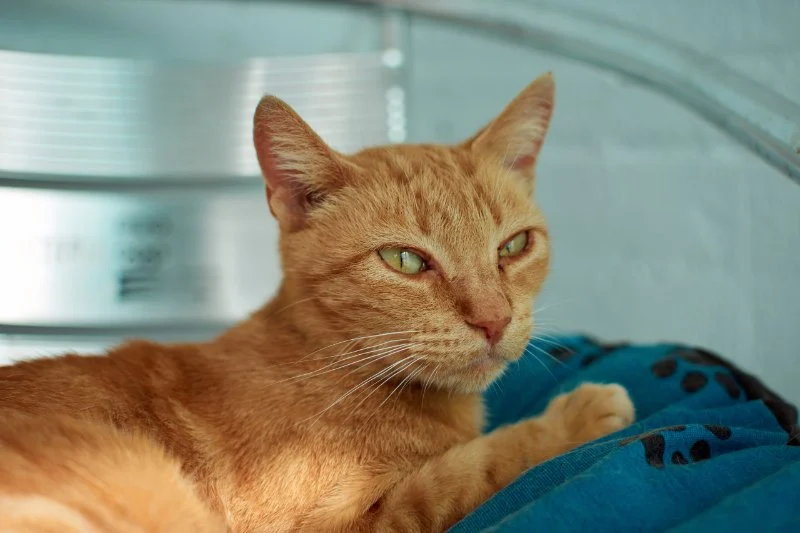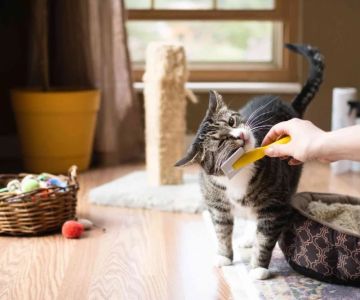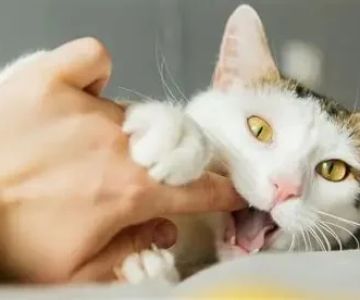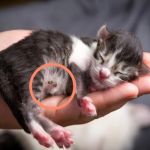
- 1-What Are FIV and FeLV?
- 2-How Are FIV and FeLV Transmitted?
- 3-Symptoms of FIV and FeLV
- 4-Caring for Cats with FIV and FeLV
- 5-Preventing FIV and FeLV in Cats
1-What Are FIV and FeLV?
FIV (Feline Immunodeficiency Virus) and FeLV (Feline Leukemia Virus) are two viral infections that affect cats' immune systems. These viruses compromise a cat's ability to fight off infections and diseases, making them more susceptible to a variety of health issues. While both diseases are serious, understanding how they affect your cat and how to manage them can help improve their quality of life.
FIV is often referred to as "feline AIDS" because it weakens the immune system similar to how HIV affects humans. FeLV, on the other hand, is a cancer-causing virus that weakens the immune system and can lead to various forms of cancer, anemia, and other health problems.

MainStreetVet.net
PerkiomenvilleMontgomery CountyPennsylvania
1335 Gravel Pike, Perkiomenville, PA 18074, USA
2-How Are FIV and FeLV Transmitted?
Both FIV and FeLV are primarily transmitted through direct contact with infected cats, but the way they spread differs slightly:
- FIV: This virus is most commonly transmitted through bite wounds. If an infected cat bites another cat, the virus can be passed into the bloodstream. FIV can also be passed from mother to kittens, but it’s much less commonly spread through casual contact such as grooming.
- FeLV: FeLV is more easily transmitted than FIV. It is primarily spread through saliva, urine, and feces. Close contact, such as grooming, sharing food and water bowls, or fighting, can lead to transmission. Kittens can also be infected in the womb or through their mother’s milk.
3-Symptoms of FIV and FeLV
While both FIV and FeLV affect the immune system, the symptoms of these viruses can vary. Here are some common signs to look out for:
Symptoms of FIV
- Chronic infections or abscesses
- Weight loss and poor coat condition
- Fever
- Swollen lymph nodes
- Gum disease and oral ulcers
- Behavioral changes (e.g., lethargy or irritability)
Symptoms of FeLV
- Loss of appetite and weight loss
- Pale gums and fever
- Respiratory and digestive issues
- Severe anemia
- Frequent infections or slow-healing wounds
- Jaundice (yellowing of the skin and eyes)
4-Caring for Cats with FIV and FeLV
If your cat is diagnosed with FIV or FeLV, providing them with the right care can greatly improve their quality of life. Here’s how to manage their health:
Care for FIV-Infected Cats
- Regular Vet Checkups: Routine veterinary visits are crucial for monitoring your cat’s immune system and catching any infections early.
- Nutrition: Feed your cat a balanced, high-quality diet to support their immune system and maintain overall health.
- Limit Stress: FIV-infected cats are more susceptible to stress, which can worsen their condition. Provide a calm, comfortable environment.
- Vaccinations: While vaccines may not completely prevent infection, they can help reduce the risk of other illnesses.
Care for FeLV-Infected Cats
- Minimize Exposure: Keep your FeLV-positive cat indoors to prevent them from spreading the virus to other cats and protect them from environmental stressors.
- Frequent Health Monitoring: Regular blood tests and checkups are essential for managing FeLV and monitoring for any secondary infections.
- Provide a Safe and Quiet Space: FeLV cats may need more rest due to fatigue and general discomfort, so it’s important to offer a quiet, stress-free space.
5-Preventing FIV and FeLV in Cats
While FIV and FeLV are serious conditions, there are ways to prevent your cat from getting infected:
- Vaccination: There are vaccines available for FeLV, which can help reduce the risk of infection. FIV does not currently have a vaccine available in the U.S.
- Limit Exposure to Infected Cats: Keep your cat indoors or limit their interaction with other cats that may have FIV or FeLV, particularly if you suspect they are infected.
- Spaying/Neutering: Spaying or neutering your cat reduces the likelihood of them engaging in aggressive behaviors, such as biting, that can spread FIV.
For more information on caring for your FIV or FeLV-positive cat, or to find pet health products and services, visit Omnia Pet. Here, you’ll find a wide range of products to support your cat’s health, as well as expert advice to help you care for your furry friend.








 Hollywood Feed4.0 (184 reviews)
Hollywood Feed4.0 (184 reviews) Brew Biscuits5.0 (2 reviews)
Brew Biscuits5.0 (2 reviews) All Friends Animal Hospital4.0 (446 reviews)
All Friends Animal Hospital4.0 (446 reviews) Kittylandkittens LLC0.0 (0 reviews)
Kittylandkittens LLC0.0 (0 reviews) Village Animal Clinic4.0 (212 reviews)
Village Animal Clinic4.0 (212 reviews) Rift Lake Aquatics4.0 (165 reviews)
Rift Lake Aquatics4.0 (165 reviews) Understanding Pet Insurance: What Does It Actually Cover?
Understanding Pet Insurance: What Does It Actually Cover? How to Keep Your Kitten's Eyes Clean and Free of Discharge
How to Keep Your Kitten's Eyes Clean and Free of Discharge The Truth About Heartworm Disease: Prevention is Cheaper Than Cure
The Truth About Heartworm Disease: Prevention is Cheaper Than Cure Why Is My Kitten's Belly Button Showing? | Omnia Pet
Why Is My Kitten's Belly Button Showing? | Omnia Pet Why Does My Cat Bite Me Gently? Love Bites Explained
Why Does My Cat Bite Me Gently? Love Bites Explained How to Stop Your Kitten from Getting into Cabinets
How to Stop Your Kitten from Getting into Cabinets